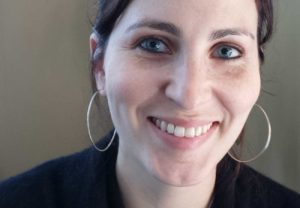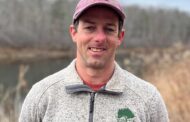Interview with Zoe Lewin of global grassroots initiative Be The Way
PelotonPosts is a monthly dispatch from PelotonLabs, a coworking community on Bramhall Square in Portland’s West End. Peloton Member Zoe Lewin works for organizations in West Africa, specifically Sierra Leone and Ghana in the fields of education and international development.
Zoe Lewin: I’ve designed curricula, opened schools, and worked directly with educators. Right now I’m in the process of research and development for a new global grassroots initiative called Be The Way.
There’s a crisis in low-income countries around youth unemployment. So young people are either dropping out of school early or they’re graduating and not finding employment. There’s a huge mismatch between the educational system and what individuals need in order to get employment. Students need the opportunity to develop soft skills – cognitive, personal, interpersonal skills. And they’re things you can’t learn by reading a text book.
I had a student, famous at the school I opened in Ghana, who realized he was in a really unhealthy living situation. So he wanted to build his own house. In order to do that, he needed money to get the materials. There were no job opportunities so he looked within the community to see if there was a need. An organization had recently come and planted a bunch of trees but they hadn’t hired a gardener to water those trees in the dry season. So he wrote a letter to the founder saying he’d observed this need. So every morning he watered the trees before school, raised the money to build his own house and built his own house. That story gives me chills because those are the soft skills that are needed to assess, to critically think, to synthesize new learning to have an emotional attunement to be able to express yourself to ask for help.
Initiatives that focus on teacher development, teacher networking, and restructuring systems can create this change.
My real craft is working in partnership with the individuals on the ground. I’m really invested in understanding power dynamics — gender, race, class – and how to work with the utmost cultural sensitivity. I’m constantly trying to question and push myself on these issues when we’re designing programs and curricula for individuals in these different regions. The challenge becomes how to work in partnership with other individuals? How am I creating the space for them to bring their talents to the table? Just creating the space and opportunity and then letting them do the design work.
PP: You’re new to Portland. Any surprises? What’s been your experience at Peloton Labs?
ZL: I love it here. Surprises? I have a lot more of life/work balance. I used to be a total workaholic and that was it. I feel like I enjoy so much more now. I go berry-picking, I take an improv class. Why? Just ‘cause it’s fun!
The surprise for me has been seeing how I’ve evolved. And realizing my work isn’t the only thing that defines me or shapes me. When I moved here, I didn’t know anybody and joined Peloton Labs. Not only was it the best thing I did for my social life, but I realized how much my work would benefit out of those connections. [Peloton Founder] Liz Trice has done a great job of creating that balance the same way I do – creating the space for people to come together and fill in the rest, but not force the connection… like ‘Hey, if you need to do your own thing that’s cool, but you’re invited to be a part of it’.






